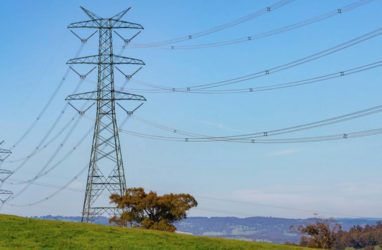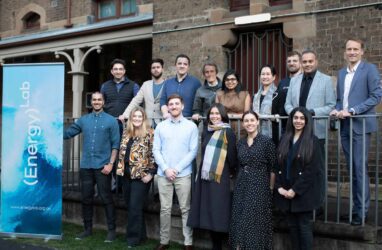Feed aggregator
Video shows koalas clinging to trees as gum trees cut down on Kangaroo Island – video
WARNING: contains images some viewers may find distressing
Footage supplied to Guardian Australia shows koalas clinging to falling blue gums as logging occurs on Kangaroo Island in South Australia. The footage was taken across two days in November 2023 and January 2024. Logging has been stopped while an investigation takes place.
Continue reading...Draft Mexican VCM regulation poses “nearly zero” risk to developers -lawyer
US federal agency eyes development of voluntary carbon offset standard
Painted towers and monopoles: There is more than one way to do overhead transmission
The post Painted towers and monopoles: There is more than one way to do overhead transmission appeared first on RenewEconomy.
NZ’s summer insects are packing up for autumn – here’s how our gardens can help them through the cold months
European Commission to publish EU ETS verified emissions data for 2023 on Apr. 3
Scotland’s pledge to cut emissions by 75% by 2030 ‘no longer credible’
Climate Change Committee finds Scottish government has repeatedly failed to make cuts required by law
Scotland’s pledge to cut its climate emissions by 75% by 2030 is “no longer credible” and cannot be met, the UK’s climate watchdog has said.
In a damning report submitted to the Scottish parliament, the UK Climate Change Committee (CCC) accused the Scottish government of repeatedly failing to live up to its legally binding targets.
Continue reading...Survey adds pressure on SBTi to allow voluntary carbon credits to be used for climate targets
Oil and gas companies far off course on Paris goals -report
UPDATE – NZ auction partially clears, spot NZU price falls 17%
EnergyLab’s Australian Startups Raise $124 Million in Record-
The post EnergyLab’s Australian Startups Raise $124 Million in Record- appeared first on RenewEconomy.
Even far from the ocean, Australia’s drylands are riddled with salty groundwater. What can land managers do?
Ella Baron on Banksy, Rishi Sunak and restrictions on climate protest – cartoon
Researchers advise caution on enhanced rock weathering estimates for CO2 removal
EU lawmakers divided over new agri policy proposals
TotalEnergies buys into US CCS projects with $148 mln Talos Energy deal
UK seeks feedback on biomethane production support, UK ETS integration
Community leaders slam investigation process that led to REDD voluntary carbon project suspension
EU must be open to CBAM changes, says senior lawmaker
Labour to make fighting global heating a priority for Bank of England
Shadow chancellor to use annual Mais lecture to set out plans to green the economy if party wins election
A Labour government will make fighting global heating a priority for the Bank of England as it seeks to put environmental sustainability at the heart of its plans to grow the economy, Rachel Reeves is to announce.
The shadow chancellor will say in a speech in London on Tuesday evening that if Labour wins the general election she will reverse Jeremy Hunt’s decision last year to downgrade the emphasis on the climate crisis in Threadneedle Street’s main objectives.
Continue reading...




